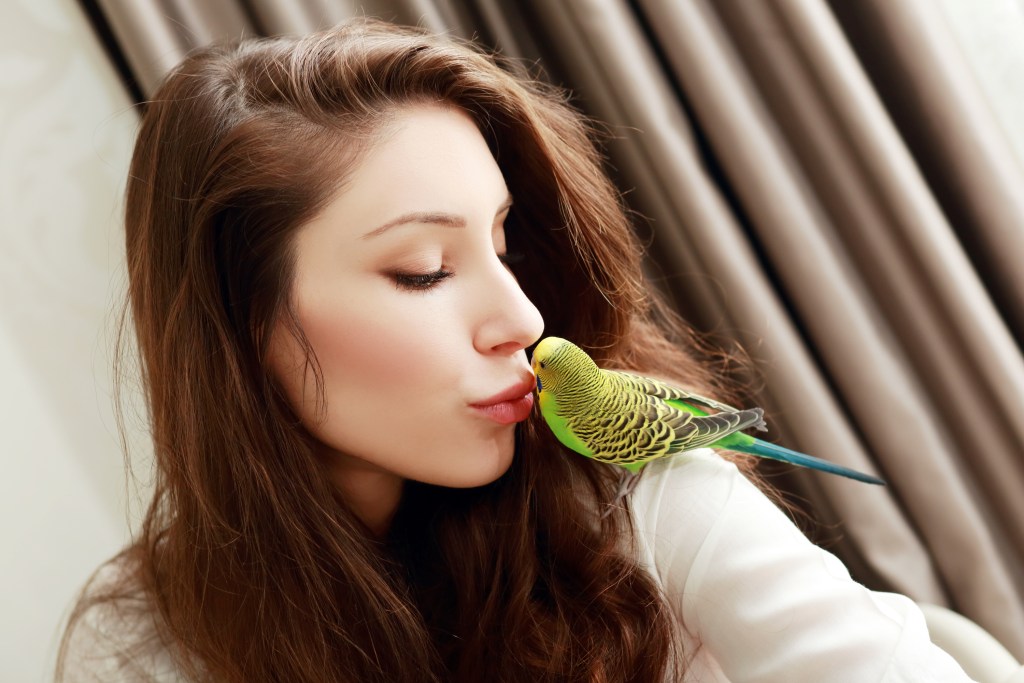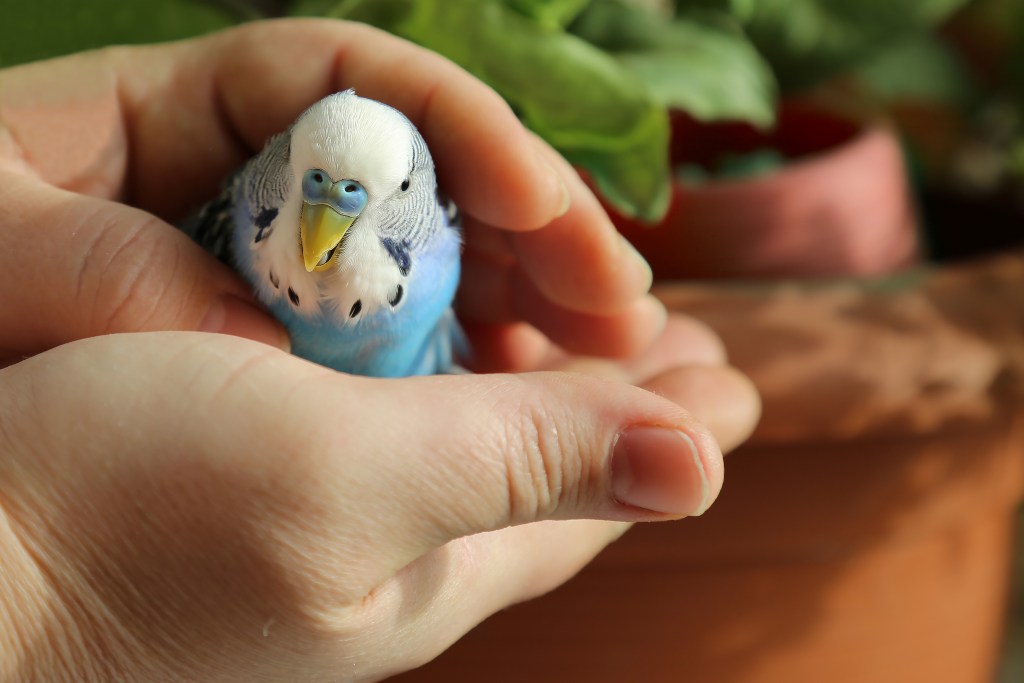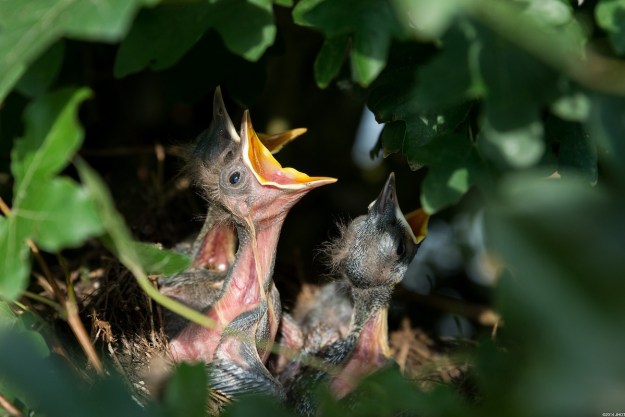Our birds love us – we’re pretty sure. Just look at their chatty and affectionate personalities to confirm how happy they are to see you. Luckily, our little fliers, unlike almost every other pet, can sometimes communicate with us more directly. Therefore, we can certainly teach them to literally say “I love you.” But while extremely charming and adorable, it doesn’t really mean they understand. Instead, you should look to the more subtle signs that your bird loves you. Here’s a few to keep an eye out for to confirm your pet truly worships you.

They talk to you
While we can’t put a lot of stock into what birds say, we can certainly take that loquaciousness as a a symbol of affection. Birds love to interact because they are highly intelligent and extremely social creatures. By talking to us, they’re really indicating that we’ve been welcomed into their flock. Encourage this behavior! It’s good mental stimulation to keep up your end of the conversation, maybe even for both of you.
They enjoy playing
Lots of playtime keeps a bird fit and engaged. When your animal loves to chew, swing, and fly, it means she’s in a good mood. A bird who ignores toys and chooses to isolate may be sick or depressed. Make sure all the creatures in your care get plenty of exercise and watch them take full advantage of the workout equipment you provide. Games should endear you to them as well. You can work with them on some training, which will maintain your bond and give them an outlet for their energy.
They like riding on you
One of the great things about owning a bird is taking her around with you while you go about your daily life. Avians enjoy showering and wandering about the house, even working with you in your office. If your companion specifically seeks you out to go for a shoulder ride, that gives you a pretty good idea that she enjoys your company. Don’t forget to return the favor and take her to fun and exciting places in the house.
They want to be petted
Keep in mind that most animals only like being stroked in certain ways and you want to carefully stick with those areas on your bird as well. Pet her beak, chest, and head for maximum results (avoid the back and tail). If you gently touch her consistently, she’ll grow to love your attention and give it in return. Look for her to rub her head against your hand – it definitely means she wants even more attention.

They greet you enthusiastically
When you walk into the room, a happy bird will rush to say hi (possibly literally). But look to their body language for a real indication. Both wings and tail movements give really good clues to her inner feelings. For example, flapping her wings actually says she’s excited to see you and ready to hang out. Additionally, just like your puppy, a feathered friend might wag her little tail as a way to express joy.
They try to give you food
Just as a happy cat leaves you presents, your parrot might try to present you with her own form of gift: regurgitated food. Yup, it’s a little gross, but moms and dads do this for their nestlings in the wild and so, if they give you the same honor, it’s a good sign. Don’t correct this action, but do make sure to replace the calories. In fact, food will help you bond with your pet right from the start and consistent treats give you a way to reward and praise your little guy.
Bonding is worth the wait
Before you can get your bird to love you, you’ll need to bond with her. That takes time. Always start slow when you first bring a new pet home and work your way up to petting and holding her. Trust us on this; you’ll want to give ample treats to ensure she associates you with good things. Start by letting her come to you instead of reaching out to her too quickly. In time, she won’t care about the food and instead will just want to spend her time playing with you and giving you her love and affection.
Editors' Recommendations
- What causes high pH in an aquarium? We’ll walk you through getting your tank levels in check
- Can you make a profit breeding your bearded dragon?
- Funny birds video: Check out these parrots playing peekaboo
- Why do birds bob their heads? The answer is pretty complex
- How to tell if your guinea pig loves you – some ways may surprise you




